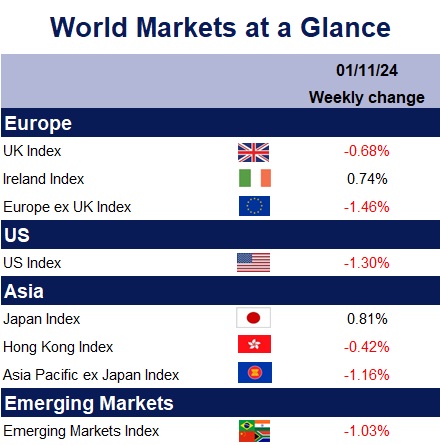On Thursday, the yield on 10-year gilts (which indicate the interest rate the government pays to borrow) briefly rose above 4.52%, marking a one-year high. This increase reflects higher borrowing costs for the government and sets the guide for interest rates on various loans and mortgages. However, by Friday, yields slightly eased back to 4.45%. Market reactions have remained relatively contained, far from the volatility seen after the 2022 mini-budget, highlighting the delicate balance required in budget planning. The FTSE 100 finished the week down 0.9%, stabilising after initial responses. The Bank of England is also set to meet on Thursday, November 7, with markets currently expecting a 25-basis-point cut.
In Europe, third-quarter GDP growth reached 0.4%, surpassing the 0.2% forecast, with contributions from France, Germany, and Spain, though some temporary factors likely influenced the figures. While this growth alleviates some economic concerns, European Central Bank (ECB) policymakers remain divided on rate cuts, with some favouring immediate action and others urging restraint. Inflation reached the ECB’s target of 2% in October, partially driven by lower energy prices last year. This has reduced the likelihood of a December half-point rate cut, with current odds at 25%.
In the US, the economy maintained solid momentum in Q3, growing at an annualised rate of 2.8%, slightly below Q2’s 3.0%, driven by strong household spending. Earnings season remained in focus, with Meta missing user growth expectations and announcing significant AI investment, while Microsoft reported robust growth in its cloud division, largely fuelled by AI demand. October’s job growth was notably lower than forecast, with 12,000 new jobs compared to the anticipated 100,000, due to factors like hurricanes, labour strikes, and election uncertainties. Inflation indicators were stable, as the personal consumption expenditures (PCE) price index reported 12-month inflation at 2.1% in September, aligning closely with the Federal Reserve’s 2% target.



